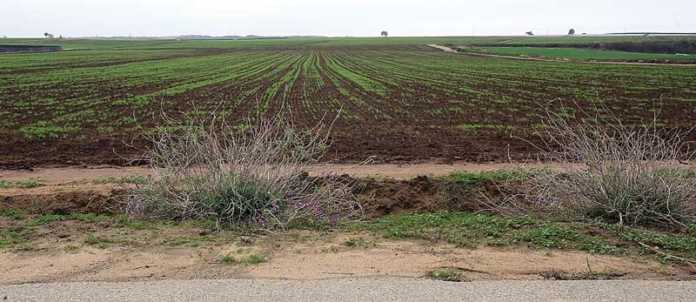MONTEREY BAY — On Monday morning, the Trump administration announced its decision to end the Temporary Protected Status program for about 200,000 Salvadoran immigrants in the United States, making it the fourth country to be served with the order since Trump took office in January 2017. Homeland Security Secretary Kirstjen Nielsen has given Salvadorans until Sept. 9, 2019 to leave the country or face deportation.
The action is one of many immigration-related movements coming from the White House in the past year, including the administration’s attempt to repeal the Deferred Action for Childhood Arrivals (DACA) policy and consistent threats of a wall to be built on the Mexican-U.S. border.
Many see this immigration crackdown as already having an effect on the U.S. economy — and no place is that more apparent than in the agriculture industry.
Immigrants from Mexico, Central and South America make up a huge percentage of agricultural workers in the United States, with 9 in 10 farmworkers being foreign born, according to a Pew Research Center study. On the Monterey Bay, agriculture is one of the top industries, employing a large percentage of foreign workers.
While no exact figures have been released yet for Santa Cruz County, a statewide report last year estimated that more than 2,000 agriculture jobs were lost in Monterey County in 2017.
“A good portion of those lost jobs may be due to the reduced availability of labor as more immigrants choose to either return to their home country, as a direct result of the changed administration in D.C., or work in other industries,” said Monterey County Farm Bureau Executive Director Norm Groot.
Groot also cited a “lack of comprehensive immigration reform” and not having enough temporary worker programs that are beneficial for local workers as other reasons the workforce in dwindling.
“[It’s] certainly not for low wages,” Groot said. “Ag is paying above minimum due to the competition for labor in a tight marketplace.”
The most recent crackdown on immigration did not, in fact, begin with the Trump administration: between 2009 and 2016, about 3 million undocumented immigrants were deported from the U.S., according to the Pew Research Center study. But the surge in anti-immigrant rhetoric coming out of Washington in the past year has definitely had an effect on attitudes across the nation, undocumented and documented alike.
“We’re very concerned about labor right now,” said Carolyn O’Donnell of the California Strawberry Commission. “I think anyone who’s recently come here from another country is feeling nervous. There’s a lot of uncertainty at this point.”
Strawberries continue to rank highest in agriculture production in Santa Cruz County, with an estimated value of $229 million, according to a 2016 crop report. Many larger berry companies such as Driscoll’s have over the years begun implementing robotic pickers and other technology, but the machines can only get so much done.
“Strawberries are very labor intensive,” O’Donnell said. “And some of the newer varieties are producing a lot more fruit that needs to be picked.”
A large percentage of agricultural workers on the Monterey Bay are immigrants from Mexico, which the U.S. had already been seeing a drop in immigration from before Trump took office. According to Pew Research, more Mexican immigrants are leaving the U.S. than arriving. Nearly one million less immigrants arrived in 2014 than in 2007.
“Things are improving in their home country,” O’Donnell explained. “There are more opportunities, in agriculture and in other industries.”
As for immigrants needing or choosing to stay in the U.S., the future remains uncertain, and along with it the farming industry. The Monterey Bay, which relies so much on the industry, could see a major shift in upcoming years.
“We need a real dialogue to be created, some consistency, some agreement in this country,” O’Donnell said. “These people came to this country to contribute, and we need them, too. We just need decisions to be made which can help everyone.”












